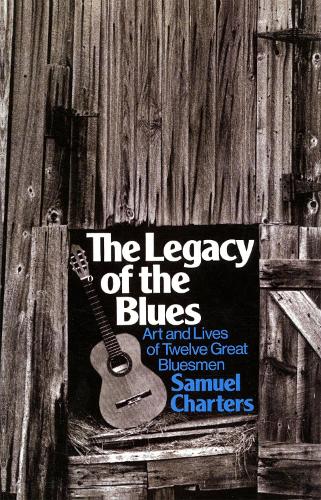
The Legacy Of The Blues: Art And Lives Of Twelve Great Bluesmen
(Paperback)
Publishing Details
The Legacy Of The Blues: Art And Lives Of Twelve Great Bluesmen
By (Author) Samuel Charters
Hachette Books
Da Capo Press Inc
22nd March 1977
United States
Classifications
Physical Properties
Paperback
300
Width 140mm, Height 216mm
Description
Blues is a languageone which has evolved its own rules and which is the sole property of a culture always forced to the periphery of white society. As such it is a political language. Whether it is passed as a legacy from African village to Mississippi farm, or from farm to Chicago ghetto, or from ghetto to Paris cafe, it is part of a larger oral heritage that is an expression of black America. Makeshift instruments, runaway slaves, railroads, prisons, empty rooms, work gangs, blindness, and pain have all been involved in the passing of this legacy, which has moved from hand to hand like a bottle of whiskey among friends and which now, for whatever reasons, seems faced with extinction. As Lightnin' Hopkins says: "I see a few young musicians coming along. But its not many. It's not many at all, and the few that isI'll tell you, you know what I mean, they don't have it. They just don't feel it...I never had that trouble. I had the one thing you need to be a blues singer. I was born with the blues. "With an awareness of the urgency involved, and with considerable devotion, Samuel Charters has chosen twelve major bluesmen, each whom represents a major facet of the blues, and has written about them. Rather than adopt the voyeuristic tone of the academician, he has used the direct visceral images that have always composed the blues. Also included are interviews, photographs, lyrics, and separate chapters on the black experience in America, and the evolution of the blues language from its African origins. Samuel Charters has renewed contact with the greatness of the blues legacyfrom the haunting lyric songs of the bluesmen like Robert Pete Williams and Lightnin' Hopkins to the fiercely joyous shouts of Champion Jack Depree, Memphis Slim, and Mighty Joe Young.
Author Bio
Samuel Charters is a musicographer, novelist, poet, and producer of jazz and blues records who for many years has also been seriously interested in every aspect of black music. His book, The Country Blues, was the first to be published on the subject. He began making field recordings in the South in the early 1950s and has subsequently produced many recordings, both of individual blues artists and of the musical backgrounds of the blues in the United States and the Caribbean. He has since extended his research and recording to West Africa. His other books include Jazz: A History of the New York Scene, The Blues Makers, and The Roots of the Blues.
